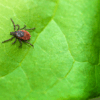As TikTok continues to grow as a platform for health and lifestyle content, an increasing number of influencers are sharing personal stories about how specific diets helped them get pregnant—particularly those living with polycystic ovary syndrome (PCOS). However, medical and nutrition experts caution that such claims can be misleading and potentially harmful.
PCOS is a common hormonal disorder that affects fertility and metabolic health. It can cause irregular menstrual cycles, infertility, hair loss, and complications with blood sugar and cholesterol. While nutrition plays a role in managing PCOS symptoms, experts emphasize that there is no one-size-fits-all food or diet that guarantees pregnancy.
“People are just sharing their personal experiences versus what might be more evidence-based for the broader population,” said McKenzie Caldwell, a registered dietitian and founder of Feed Your Zest Nutrition & Wellness. “We have to take them with a grain of salt.”
Some influencers promote the idea that dietary changes can “balance hormones” and lead to pregnancy. But health professionals point out that the term “hormone balancing” is vague and not medically accurate. Dr. Lora Shahine, a reproductive endocrinologist based in Seattle and host of the Brave & Curious podcast, supports healthy eating but warns that relying solely on diet may delay appropriate medical care.
“I see people who I wish would have come to see me sooner,” said Dr. Shahine. “Diet and lifestyle are important pieces of the picture, but they’re not the whole picture.”
Vanessa Rissetto, co-founder of Culina Health, echoed this concern, saying that although food can support fertility, it is dangerous to assume that what worked for one person will work for another. “IVF is expensive and emotionally taxing, so I understand the desire to try natural methods first. But telling people ‘just do this and it’ll work’ is irresponsible.”
While the Mediterranean diet—rich in fruits, vegetables, whole grains, and healthy fats—has been associated with improved fertility outcomes, there is no conclusive evidence that it, or any other diet, can guarantee conception. Experts also challenge common internet trends like cutting out gluten or dairy unless medically necessary.
“There is zero evidence that avoiding gluten or dairy improves fertility unless someone has a diagnosed intolerance,” Caldwell explained, adding that these foods often provide essential nutrients and fiber.
Some also promote the keto diet, but Caldwell advises against it, noting that low-carbohydrate eating may deprive the body of important antioxidants and fiber needed for hormonal and overall health.
Anthea Levi, a registered dietitian and founder of ALIVE+WELL Nutrition, said some online claims—such as the necessity of eating only raw vegetables—are unfounded. “Cooking vegetables can actually improve digestibility and nutrient absorption for many people,” she said.
Levi and others encourage individuals to consult credentialed professionals rather than rely on social media influencers. “It’s never about one food,” she said. “Your overall dietary patterns matter far more than any singular ingredient when it comes to supporting fertility and hormone health.”








































